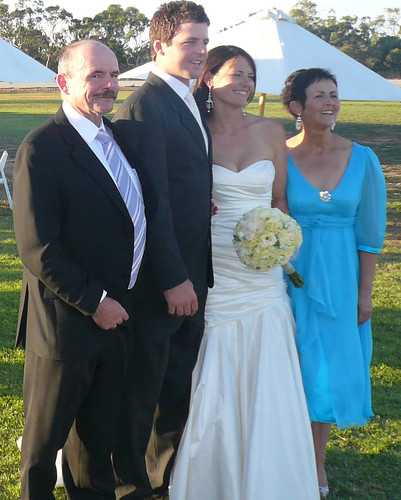As I continue to explore the ideas and importance of developing resources and lessons about Digital Citizenship. I came across this presentation by Dean Shareski. Dean asks us to think about our Google identity. Have you ever googled yourself? He suggests that there are strategies and ways to take control the way we are 'googled'. I wonder how many of us even think about that. I certainly think that it's something that we should be teaching our students. By teaching the about taking control I hope to help them understand that they are should be thinking about what can be known about themselves online. And that if they are careful and clever they actually have a choice about that. And I hope that it will create an awareness of how easily information can be posted that is not desirable or appropriate. It is important that we all take charge of that information as much as we can.
As you listen to Dean's presentation ( there is an audio with the slideshare) , think about your digital footprint. What does it say about you?
Tuesday, October 21, 2008
Subscribe to:
Post Comments (Atom)

 Flickr/annieb3525
Flickr/annieb3525 Facebook/Anne Baird
Facebook/Anne Baird Twitter/annieb3525
Twitter/annieb3525 Del.icio.us/annieb3525
Del.icio.us/annieb3525 GMail/Anne Baird
GMail/Anne Baird coComment/annieb3525
coComment/annieb3525 Technorati/annieb3525
Technorati/annieb3525


3 comments:
My students were working in the lab last week and one after another they started “googling” themselves. The first student tried it and found his cross country record that had been posted in the local paper popped up. He was fascinated by this and within minutes he had the whole class trying it. As they looked themselves up one student with a rather common name was shocked to see that her name was linked to a news article about a murder in another state. She was so upset by this seeing that her name had been tarnished by another person out there with the same name. We put her at ease showing her that this murderer was 30 years older than her and in another state but it sparked an interesting discussion among my sixth grade students. They were all talking about how nothing is really a secret anymore and everyone can see everyone else’s business through the internet. I talked with them about how just as easily as your cross country article can pop up so could your drinking ticket article or your burglary article. It was an interesting “teachable moment” as they all discussed controlling what was written about them by controlling their actions.
As an educator and teaching undergraduate courses, I am also more than aware of the fact that my students are not only guilty of plagiarism, but more and more they are using their valuable study time, surfing on FaceBook, MySpace, chat rooms, etc. They are very proficient at taken notes during class, and jumping ever-so-quickly from note taking to their friends’ pages. Realizing that our students are always several steps ahead of us, I was please to find after reading others’ blogs and some research that Congress has passed an update to the Children’s Internet Protection act requiring schools to participate in the E-Rate program to educate students regarding appropriate behavior on social networking and chat room sites. Education of our students, teachers, and parents is the best way to protect and prepare our extremely, cyber-savvy students.
Anne, I “googled” myself a few years back and my digital footprint is not really that interesting (a few education credentials, and a website that I added to about 10 years ago). However, it lead me to “google” others and I got to thinking that anyone can google anyone. This does mean something for our students and for us as educators. I am also aware that most of our students will have or already do have a My Space, Facebook or other type of personal add online that can be accessed by almost anyone, as well. One of my fifth graders went on a beach vacation with her family a few years back and when she came back she posted pictures of herself and her friends in bathing suits on her MySpace page. Her mother and father came to realize this and were beside themselves with worry not only about who would have access to this page but how their daughter would be perceived by any number of viewers. In the end, the pictures were removed and we all had a long discussion about the dangers involved in this type of exposure.
I agree with you that it is our responsibility to begin discussing the importance of safety and representing oneself in the best and most respectable light when creating these personal (yet not so personal) online spaces. I have many friends whose Facebook pages are plastered with images of late night socializing and promiscuous behavior. I can’t help but think that even at age 35 (my age) this portrayal of oneself could still pose some harm. I am going to take some time to watch Dean Shareski’s video and hopefully I can begin to create a new and improved digital footprint. Thanks for the help. Heather Summers
Post a Comment